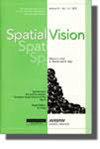Fit Perception and Engagement: The Mediating Role of Work Meaningfulness
引用次数: 1
Abstract
Research on engagement has gained considerable attention in recent years as it is a strong predictor of a range of positive individual and organizational outcomes. There is a question of why the level of the engagement is different from employee to employee in an organization, though they are provided with the same resources. This study aims to investigate the influence of fit perception on engagement and the role of the employee’s psychological condition (work meaningfulness) on this relationship. This study mainly employed a survey research strategy, and data were primarily garnered from a questionnaire. This study was conducted among 145 respondents from the public sector organizations in Sri Lanka. Partial least-square structural equation modelling was employed to analyse the generated data. In this study, the researcher has conceptualized fit perception as a higher order construct comprising Person Job fit and Person Organization fit. The study revealed that fit perception positively influences employee engagement, and this relationship is mediated by work meaningfulness. This study contributes to the literature by deepening the understanding of the fit perception and engagement relationship by introducing work meaningfulness as a mediator variable. By highlighting how engagement is influenced by fit perception and work meaningfulness, this study facilitates practitioners to build and maintain an engaged workforce. Further contributions of this study, the avenue for future research, and study limitations are presented in detail at the end of this article.工作意义感的中介作用
近年来,敬业度的研究获得了相当大的关注,因为它是一系列积极的个人和组织成果的有力预测指标。有一个问题是,为什么在一个组织中,尽管为员工提供了相同的资源,但员工的敬业程度却不同。本研究旨在探讨契合度感知对敬业度的影响,以及员工心理状态(工作意义)在这一关系中的作用。本研究主要采用调查研究策略,数据主要来源于问卷调查。这项研究是在斯里兰卡公共部门组织的145名受访者中进行的。采用偏最小二乘结构方程模型对生成的数据进行分析。在本研究中,研究者将契合感知概念化为一个高阶构念,包括人与工作的契合和人与组织的契合。研究发现,契合度感知正向影响员工敬业度,这种关系受工作意义感的中介作用。本研究通过引入工作意义作为中介变量,加深了对适合度感知与敬业度关系的理解。通过强调敬业度如何受到适合度感知和工作意义的影响,本研究有助于从业者建立和维持敬业的员工队伍。本文最后详细介绍了本研究的进一步贡献、未来研究的途径和研究的局限性。
本文章由计算机程序翻译,如有差异,请以英文原文为准。
求助全文
约1分钟内获得全文
求助全文

 求助内容:
求助内容: 应助结果提醒方式:
应助结果提醒方式:


